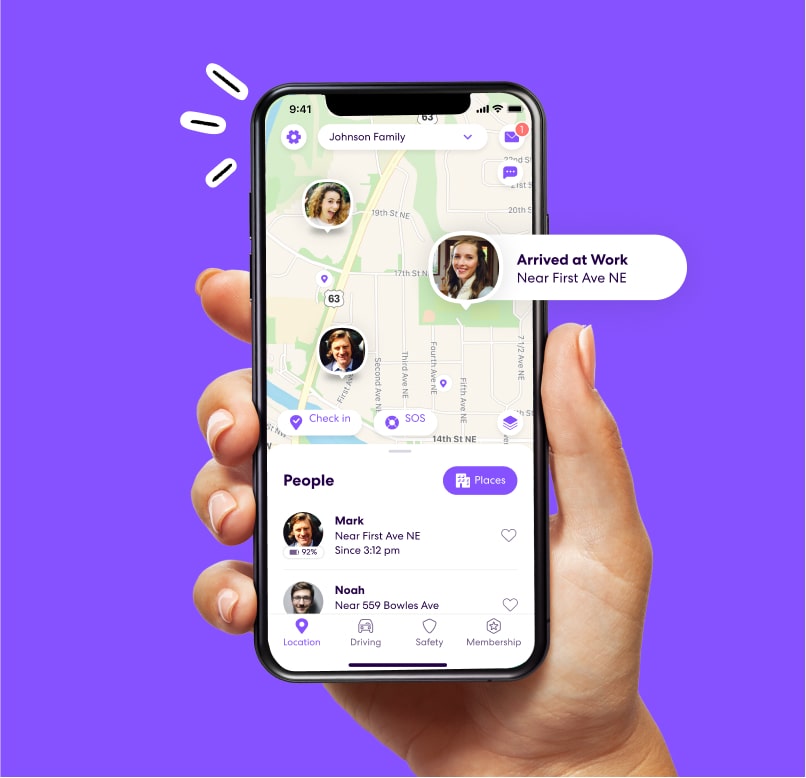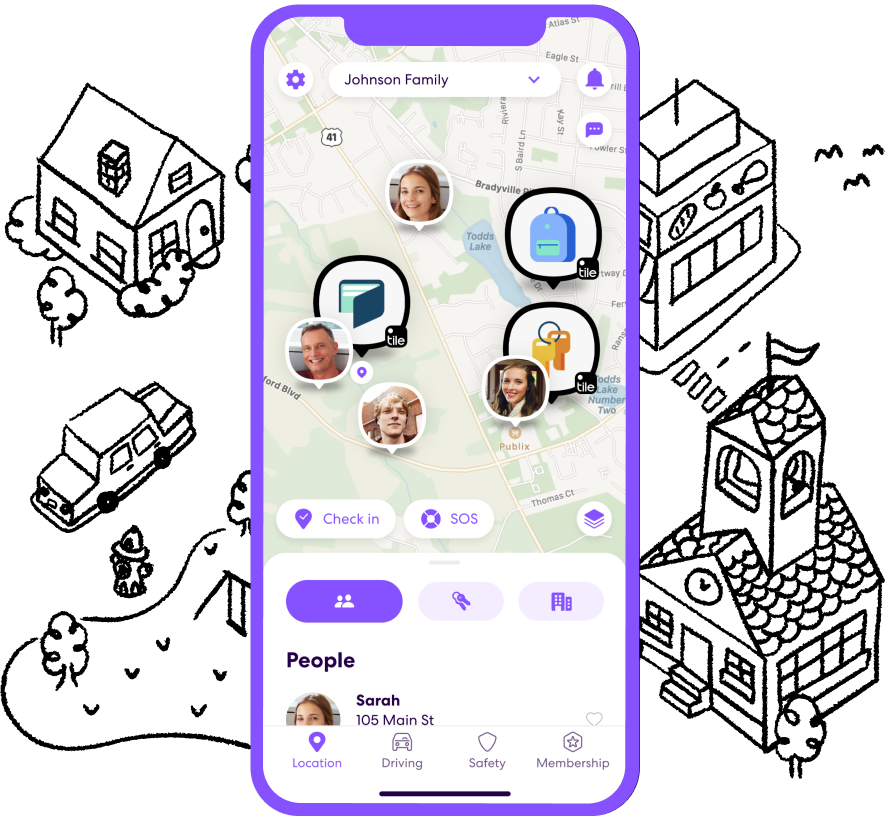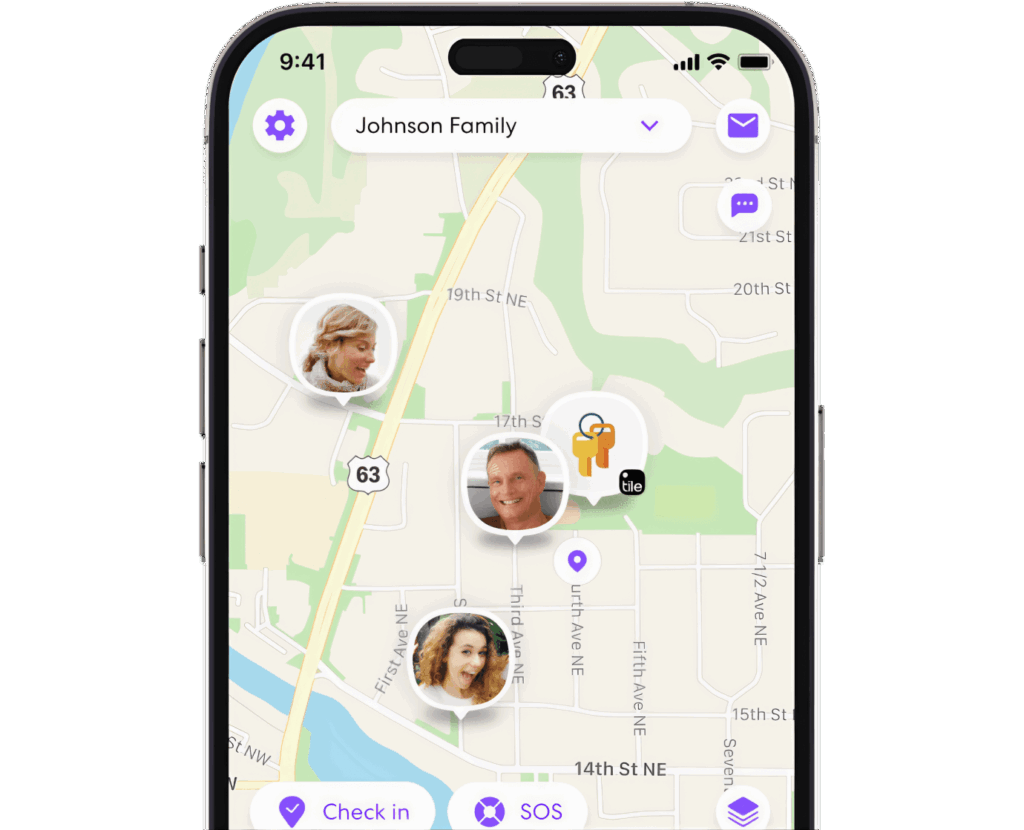Popular family safety and tracking app Life360 is expanding into the analytics and advertising platform market.
It unveiled Place Ads, its first location-based ad targeting solution, and Uplift, a foot traffic analytics tool that tracks store visits, on Thursday.
The company’s product line is centered around tracking.
Parents frequently use it to keep tabs on their kids’ whereabouts, and it’s well-known for its emergency feature, which functions similarly to a medical alert button. In addition to offering a “Watch me Fly” feature that notifies users when a flight lands, the app may be configured to notify family members in the event that it detects a possible fall or crash. In addition, Life360 owns Tile, a tracking gadget firm it purchased in 2021.

Here, persistent location tracking is a recurring topic.
Brian McDevitt, vice president of ads at Life360, told AdExchanger that the platform is inoperable without constantly-on location sharing.
According to McDevitt, who joined the firm around nine months ago, Life360 started testing advertisements in its apps. Up until recently, the company made practically all of its money from subscriptions.
According to him, the new Place Ads would include the company’s first native advertisements in its apps and allow for more advanced location-based targeting across additional media channels. Google Ad Manager serves as Life360’s ad server.

Uber, one of its test partners, targets individuals as they arrive at airports using Life360. When someone’s plane lands, the Life360 app can send a push notification encouraging them to book an Uber ride. During the initial months of testing, Life360 assisted Uber in booking over 100,000 rides, according to McDevitt.
Uplift, the other new product, is for attribution in the real world. According to McDevitt, “we can essentially draw a circle around any point of interest that you think is interesting for your brand.”
For instance, Chipotle and other quick-service restaurants may utilize the Uplift product to determine whether advertisements placed in a specific area increase foot traffic to their establishments.
According to McDevitt, Life360 offers a number of significant benefits over other location-based tracking programs.
According to him, the majority of other location data providers that offer foot traffic assessment and store visitation solutions rely on “cobbled-together [data] from a bunch of SDK pings from a variety of different apps on your phone.”
Additionally, these providers occasionally feed models with small panels of hundreds or tens of thousands of consumers. In comparison, the Life360 app has 84 million monthly users worldwide, including 45 million in the US, and they typically open the app five times a day. Additionally, they have all consented to location monitoring being enabled at all times.

Additionally, McDevitt pointed out that other location data services are heavily reliant on Android since the Android OS gives app developers access to additional identification data and facilitates consent-gathering. However, about 70% of Life360’s user base is iOS-based.
“It provides a much more accurate view of the market and what customers are doing when they visit the store,” he said.
But what about the question that is obvious? Instead of wanting their data to be used for ad targeting, users activate location sharing in Life360 because it is required by the service.
Given that Life360 users must enable location sharing—which is the main goal, as an emergency could occur at any time—the new ad targeting and analytics company may be perceived as using a Trojan Horse to smuggle in advertisements.

However, McDevitt clarified that this is untrue, pointing out that when users join up for any of Life360’s services, they are given a one-page document outlining how their data would be used for analytics and advertising. Since it does not rely on the IDFA, the company has not recently altered its terms or been obliged to obtain additional consents, such as through Apple’s ATT consent notifications.
According to McDevitt, the company’s ATT opt-in rates for iPhone consumers are quite high because to the way its services are utilized. The main goal for the majority of clients is to constantly monitor location data.
However, he added, guardrails are also in place.
Location-based analytics and targeting adverts are not allowed to use data from users younger than 18. Additionally, Life360 will not geofence important areas, such as clinics, schools, places of worship, and hospitals.
However, McDevitt stated that “the insights that we’re capturing are different than what’s in the market today” for Life360’s regular tracking. “We have a thorough understanding of the distinct dynamics of a family and who influences what kinds of purchases.”
Step into the ultimate entertainment experience with Radii+ ! Movies, TV series, exclusive interviews, live events, music, and more—stream anytime, anywhere. Download now on various devices including iPhone, Android, smart TVs, Apple TV, Fire Stick, and more!


